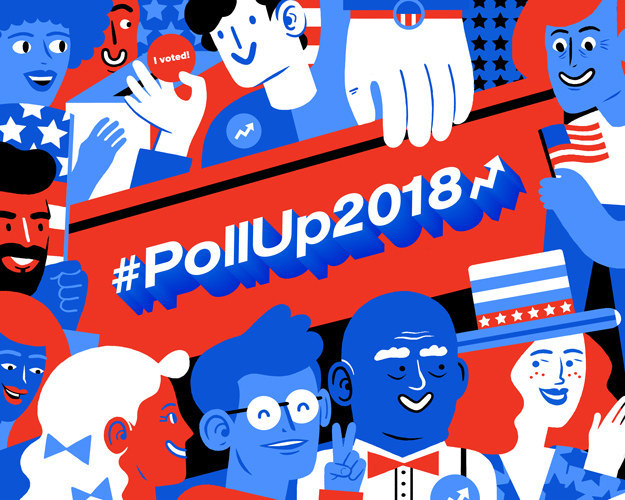
In spring 2017, I wrote a post about how frightening the world felt — how, surely, things were worse than they’d ever been. I spoke to sociologists, historians, and disaster preparedness experts, and found some very good news they all agreed on: no, things weren’t worse than ever before, and that when everything around us feels bad, the thing to do is vote and get involved in local politics.
Peter Stearns, professor of history at George Mason University and author of American Fear: The Causes and Consequences of High Anxiety advocated for joining grassroots organizations that work on local issues. “Address clearly defined local problems, get people together who aren’t in same political party or race, but acknowledge we’ve got a problem,” he told me. Joining or organizing marches, volunteering, participating in local organizations like League of Women Voters or the PTA, or even running for office really do make you feel better, in addition to creating higher voter turnout.
These days, burnout from the pace and tone of national politics is common. But being burned out on a national level isn’t excuse to not vote. So many important choices are made at the state and local level, which in turn shape federal laws, and very often, local politicians or judges grow up to become national ones. If anything, local political engagement is a great antidote for your burnout — the policies generally affect your personal day-to-day life a lot more, and it’s easier to see the impact of your efforts.

So, what kinds of things are determined at a state or local level that you can have a direct hand in by voting? Here are a few that might inspire you to get involved — or, at the very least, vote in the upcoming midterms:
Mental health services. Do you want people to have better access to mental health services? Of course you do! According to Mental Health America, state and local level policies have the biggest impact on access to mental health care through things like allocating resources and services that provide timely treatment to those in need. “States that took aggressive policy changes, such as the implementation of The Mental Health Services Act in California, resulted in significant changes in access to care,” the website says. Here’s a look at statewide mental health budgets and care from a few years ago, to get an idea of what that looks like, and here’s a more in-depth look at state-specific data.
Vaccines. Turns out, arguing with your high school friend about why they should vaccinate their child isn’t the only way. Your state decides who needs a vaccine, when they need it, and what exactly qualifies as an exemption. Check out a map of every state’s vaccination requirements and get a more in-depth look at your local laws here.
Local and city parks. If you like having green spaces near you (and you should, tbh), then you can vote for a local politician who makes it a priority. In most major cities like New York, who you vote for for city council and/or mayor will directly influence the creation and maintenance of your parks. Find out if your mayor is an advocate of parks here, and see what local zoning issues are up for a vote this year here.
Noise ordinances. Your municipal government decides when airplanes can fly overhead, how loud you can play your music, when you can mow your lawn, the works. Not only will quieter streets help you and your neighbors sleep a little better, but it also will ideally cut down on noise pollution, which endangers wildlife, among many other negative consequences.

Renewable energy. Cities in particular have the power to turn back the negative effects of urban waste.
Whether or not you can beekeep or raise your own chickens. Having fresh honey and eggs from your backyard is a great way to level up your life, but whether or not you can do this at home is often determined at the municipal level based on health and zoning laws. Find out more about pet chickens here and beekeeping here.
Recycling options and collection. While the EPA oversees things like landfill regulation and recycling goals, it’s up to individual states, municipalities, or counties to decide what can be recycled and how it should be done. Find out more about your state-wide recycling bans and policies here.
Cannabis. Legalizing it is a state issue, so voting for state senators and representatives will help a lot if you’re hoping to change your state’s law on it. Here’s a map of states that have legalized marijuana, and here’s a comprehensive list of upcoming elections that could decide the issue near you.
This is just a sampling; if there’s a cause you feel passionate about, chances are, a local politician or body makes legislation on it. Check out a resource like Ballotpedia to find out if issues like LGBT rights, fracking, and minimum wage are on the ballot this year, register to vote, and remember: if politics seem overwhelming to you, start small. It’s the least we all can do.
Need help registering and getting ready to VOTE? Sign up at TurboVote and get access to a 50% off Lyft promo code for your ride to the polls here!


